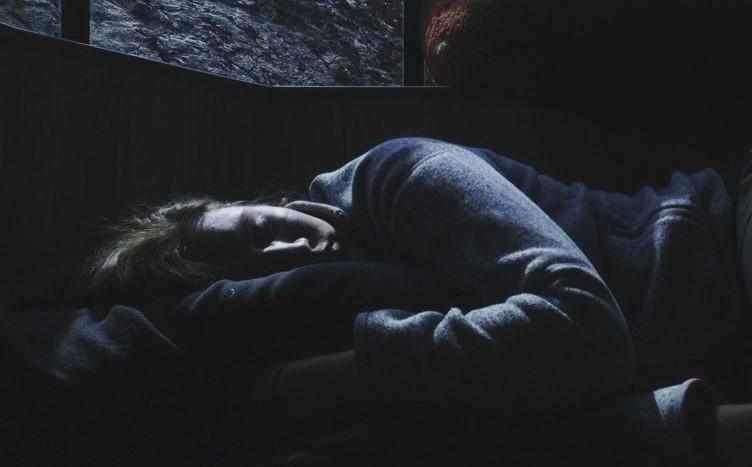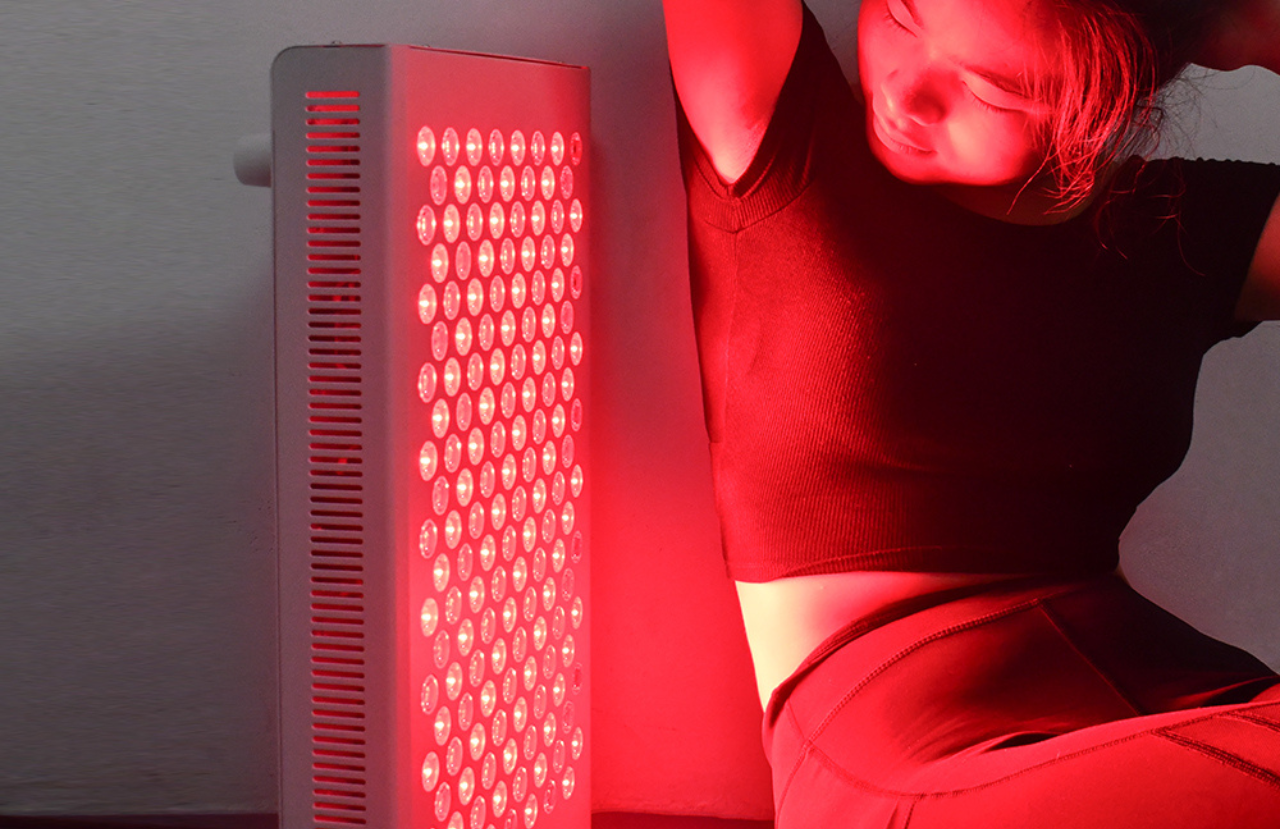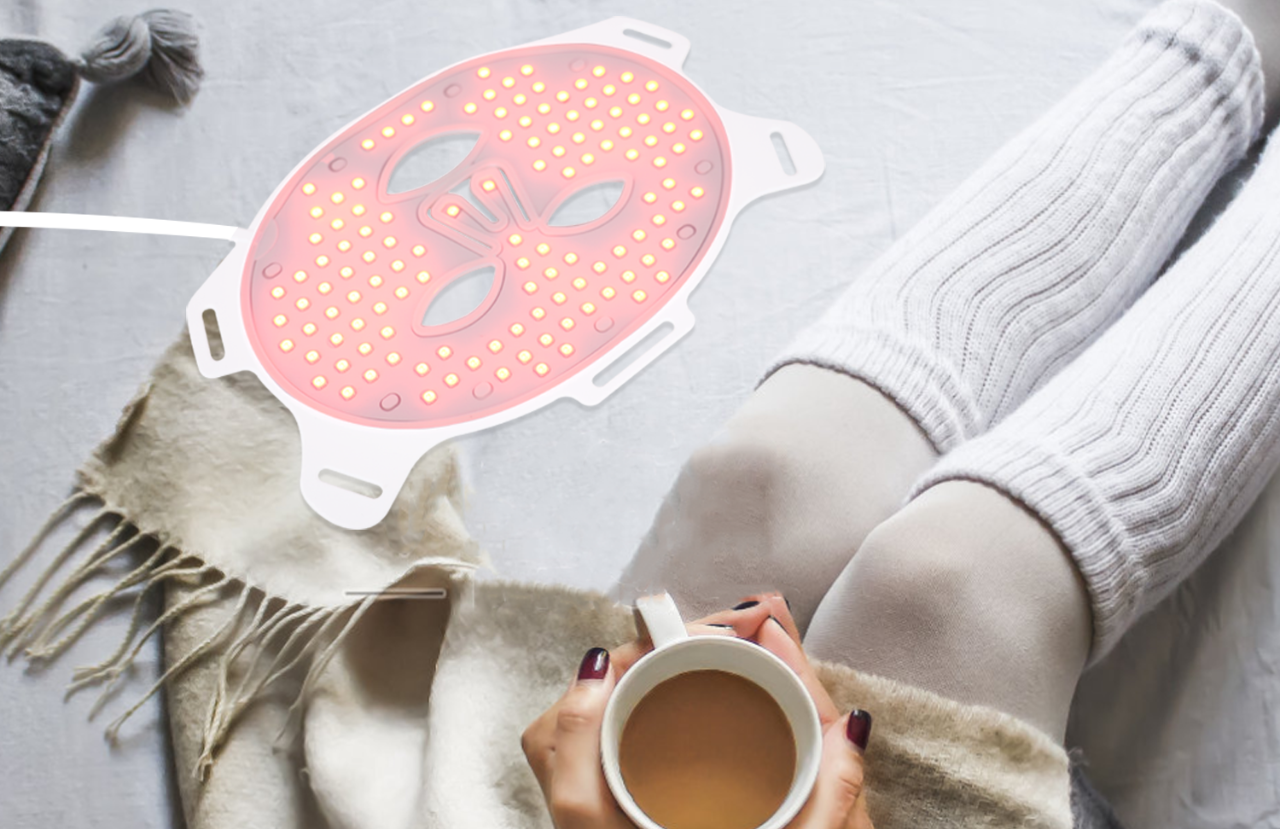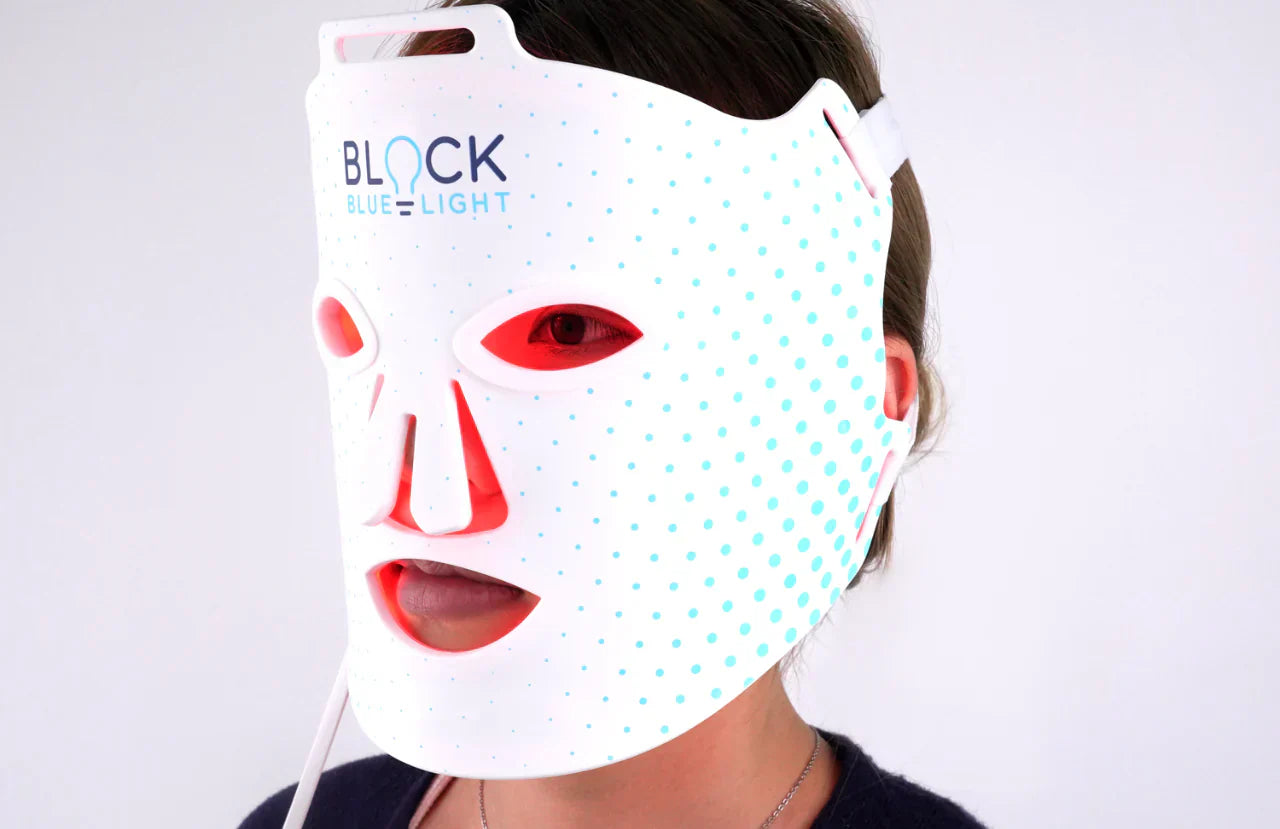Introduction
How many of you lie awake at night? Tossing and turning only to get up in the morning feeling like you have been hit by a train. Literally at that point you are counting down your hours until you can get back in bed, and hoping this time you will get some refreshing sleep. The idea of surviving your day feels like you are about to run a marathon through the Sahara without water. To make matters worse your need for your stimulants (your morning double shot of coffee) to give you that jump start, only places further stress on your nervous system causing more sleepless nights to follow. We all have a basic need for sleep which if not met, will cause disruption to our daytime routine.
Nature’s alarm clock

Every animal that is awake during the day wakes with Nature’s alarm clock, the sunrise. We are genetically preprogrammed to wake at the first glimpse of light. Light receptors in the body have evolved to pick up light and this light raises our cortisol levels (wake hormones) while at the same time decreasing melatonin (our sleep hormones) ultimately waking us up.
Morning exercise

In an experiment where people exercised at either 7am, 1pm or 7pm it was shown that those who exercised in the morning reduced their blood pressure while they were sleeping by an average of 25% as well as increasing their percentage of time they were asleep in stage 2 sleep.(the deep restorative sleep) by 75%
The double spike in cortisol induced from both early morning exercise and by exposure to early morning light holds the key as to what we should be doing to guarantee a great nights sleep. As cortisol levels spike melatonin levels must drop, there appears to be an inverse relationship where when one rises the other must fall. The greater you can spike your cortisol before the hours of 9am, the greater the fall of cortisol in the evening.
Limiting exposure to blue/white light

We all love eating dinner and sitting down to binge watch a few episodes of our latest favourite shows on Netflix. This however comes at a cost, it has been estimated that for every hour we expose ourselves to blue and white light (tv, computers, or fluorescent lighting) we can expect a 30 minute drop in the time we are sleeping. A good idea is having a curfew on your entertainment an hour and a half before you plan to go to bed. If you plan to go to bed at 10.30pm this means not using social media after 9pm.
If you must use your devices beyond this time there are apps available that you can install that will lower the blue and white light. One such app is called flux, you can use this both on your phone and laptop. If you choose to watch a show, screen it through the computer instead of watching the tv.
Of all the coloured spectrum, it has been shown that red and orange light at night has the least effect on disrupting our own bodies production of melatonin.

Scientists believe this may because we have been using fire at night for millions of years and our bodies have evolved to this.
Although the ideal may be to go to bed when the sun sets, it is unlikely that many of us will ever do this. Sometimes a little bit of technology is very handy, and using blue blocking glasses and blue light free lights has had profound effect on sleep quality and overall health.
Use candles and lamps

Human’s have been sitting around open fires at night to eat, chat and socialise for thousands of years. Over that time have evolved so the gentle yellow, gold and orange hues do not raise our cortisol levels, which disrupts our circadian rhythm. As the sun goes down try setting the ambience by dimming the lights and using candles and lamps or blue blocking light bulbs.
Are you an early bird or a night owl

An experiment I found fascinating was one in which they took two groups of people camping, half being night owls and the other half being early birds. Both groups were monitored before they went camping and results showed that the early birds do indeed produce hormones preparing them for sleep early in the evening. The reverse proved true for the night owls, they didn’t start producing the same hormones until the very late evening or early morning. The experiment lasted two weeks, the rules were you could only use the light of the Sun or the light from fires for the duration of the experiment. No torches!! After two weeks the participants had all reverted to becoming early birds. That is they discovered there was a mechanism to reset their circadian rhythms and that was the Sun. (Paired with absence of light during the evening)
What about moonlight?

Units of light are measured by their intensity in luxes, (1 lux being the equivalent of the light generated from 1 candle) the light generated from the moon and stars works out to be about 1 lux. The stimulus from 1 lux on the body is not great enough to disrupt the bodies circadian rhythm. There is a difference from the light pollution of industrial street and building lighting at night, so unless you lucky enough to live where there is no artificial light coming into your bedroom, close your curtains!!
Lights in your bedroom

Make a point to eliminate all light in your bedroom at night. Turn off your phone, even a small amount of light has been shown to cause major sleeping problems. It is not only your eyes that can pick up light, your skin also has light receptors in it. An experiment where they strapped a blue light to the back of someones knee and strapped it up so no light could be seen, proved enough to cause a disruption to their sleep cycle. The general rule is your room should be so dark that you can not see your hand in front of your face. If you need to see in the night use blue blocking red light torches or red led night lights which provide enough light to navigate to the bathroom etc
My cup of coffee

Caffeine has a half-life in healthy individuals of about 5.7hrs. This means if you consumed a cup of coffee at lunchtime, half of the caffeine would still be present in the body at 5.40pm. If you went to bed at 9pm, there will still be significant caffeine in the body to disrupt sleep. Caffeine can stimulate stress hormones in the body keeping you up at night, if you suffer from disrupted sleep make your last cup for the day at lunch. Even better limit your coffee to the morning, and opt for herbal teas in the afternoon and evening.
Snacking on carbs

As your body produces melatonin in the evening with the diminishing light your cortisol levels fall. If you stay up beyond that window the body is forced to produce extra cortisol to keep you awake. This in turn causes your body to increase cravings for carbohydrates, as a short term energy source to keep you awake. By simply going to bed earlier you may find you do not lose your taste for chips, biscuits and chocolate.
How much sleep do we need?
This is one of the most confusing questions, that in my opinion has never been properly addressed. My first point is, when evaluating how much sleep is optimum for peak performance we need to look at those who have amazing health, vitality and above all longevity. Now if we turn to those around the world that do and question them, what do you think the answer is? Is it, “I get by on 6hrs”, or “I find I function better on 8hrs?” NO!!
It is “I go to bed shortly after sundown and wake up early with the sun”. If you look at the true science of the body and how our hormonal systems work, you will quickly see that without electricity it is almost impossible to stay awake very long after the sun has set. Our body starts producing hormones to put you to sleep as soon as the intensity of light starts dropping, our use of artificial lighting only tricks the body to believe the sun is still up.

There is a chapter in a book (Staying young by Paavo Airola) called ask the centenarian(100yrs old), in this chapter they ask centenarians what they believe their secrets are and every single centenarian that mentioned what time they went to sleep repeated the same thing, “I go to bed shortly after the sunsets and arise with the sun.”

Many of the centenarians tend to come from small isolated villages that have a strong communal network. They live simple lives, eat locally grown fresh foods straight from their gardens, engage in regular daily exercise and live in accordance with nature, rising and retiring with the sun.
If you are tired during the day, unable to get through without your stimulants and find you just don’t have enthusiasm for your work, the gym, hobbies and family. Then the answer is you need more sleep.
I would strongly recommend going to bed at sundown, or 9pm at the latest, especially if you have major health concerns. Do this until you start waking up refreshed and no longer need your double shot of coffee to jump start you in the mornings or late afternoon.
If you can’t get to bed by 9pm, I would like to emphasise that your anabolic window of recovery is between the hours of 10pm-2am , this is when your body produces the largest amount of anabolic hormones and restorative enzymes. (It is basically like the body healing, but on turbo) There is a lot of truth in the old wives tale that every hour of sleep before midnight is equal to two hours after midnight.
High cholesterol

A study published in “Sleep” involving 1,666 men and 2,329 women over the age of 20 showed sleeping less than 5hrs at night raised the risk of high triglycerides and low HDL in both men and women.
The 24hr gym

You want to exercise no later than 3hrs before you plan to hit the hay. Exercising too late increases your cortisol which directly interferes with your sleep hormone melatonin. You want to give the body a chance to reduce its cortisol levels in the evenings, if you must exercise take a relaxing walk, do some stretching or catch up with friends. The bodies circadian rhythm is in tune with the sunrise, so you also do not want to get up much earlier than rooster crows, no 2am workouts!! Although these 24hrs gyms are very handy, you want to aim to do your exercise while the sun is up, or very close to it.
Are you training hard but not reaching your goals?

Do you find that you are eating perfectly, putting in the hard hours in the gym and not getting the results you’d expect? Are you constantly changing your exercise routine and diet but still nothing works? Well the answer may be you are not getting enough sleep. The old strongmen use to take naps after workouts and often sleep 9 -10hrs per night. They knew that the workout merely provided the stimulus for change, growth, repair and over compensation by the body occurred at night. I mentioned earlier the bodies healing ability is literally on turbo between the hours of 10pm-2am? If you are seeking to lose weight, gain muscle or simply heal injuries you must make sure you are getting sufficient sleep.
High blood pressure

After working for almost 15yrs in one of the world’s most prestigious health retreats I discovered something that was nothing short of a miracle. If a person was able to get away from their hectic lifestyle, enabling them to go to bed early their blood pressure would drop, and I mean really drop. I would take every guest’s blood pressure when they arrived on a Sunday and once again on the day they were leaving, normally a week later.
Everybody's blood pressure would drop over the week, even to the point where we had those coming in with a very high blood pressure leaving with low blood pressure.
One particular client came in with very high blood pressure that concerned me greatly, his blood pressure was 176 over about 140. His wife had bought him to the retreat under the disguise he was going to a golf retreat, she mentioned to me that being in his late sixties she was scared that this was his one last chance. I need to mention he was on strong medication for blood pressure and planned to stay 3 weeks. I tested his blood pressure each week and after two weeks it had dropped to 120 over 80., which I was very happy about. At this stage I became fascinated with what was happening and decided to take his blood pressure daily, the following day it was 116 over 74, the day after 106 over 70. The crunch came when it dropped to 90 over 54, a guest mentioned he was feeling light headed and was having problems holding a conversation. I called an ambulance immediately and he was rushed to a nearby hospital. Upon his return he informed me the doctor had requested he go off all medication that he had been on for the last 17yrs. His blood pressure ended up stabilising after the three weeks at about 115 over 76. I told a nurse who was a lecturer at one of the main universities in Australia about it who was a guest weeks later, showing her the results of the guests weekly blood pressure records. She was flabbergasted!! She told me she would get a statistician from the university to contact me, as this was news worthy and worth researching further.
Weight loss

It was interesting to note in a study where the participants were sleeping an average of six and a half hours each night, they found by increasing the duration of their sleep to eight and a half hours they were able to lose 53% more fat. That is a staggering difference, nothing else changed, not the exercise, or the diet, just the amount of sleep they were getting. Staying up late raises cortisol levels in the body, which in turn affects your metabolism. These elevated cortisol levels stimulate excess release of glucose stored in the liver, limiting insulin production which would remove excess glucose from the bloodstream, ultimately resulting in high blood sugar. When these cortisol levels do eventually drop the body will try to remove the excess glucose by producing insulin. This makes losing weight extremely difficult as the body will tend to store the extra glucose as fat.
Sleep deprivation leads to an early demise

Nothing ages the body faster than a lack of sleep. A sleep deprivation study conducted at the University of Chicago, employed both male and female volunteers in their early twenties.
They were permitted to sleep four hours per night over a 7 day period. After one week or 28hrs lost sleep, they began manifesting the levels of mental and physical functioning seen in the average 75yr old. Another study where the American Cancer Society evaluated mortality rates of 1 million people over a six year period, showed over all age groups the highest mortality rates were among those that slept less than four hours.
Sleep- the true key to longevity and youthfulness

As the world turns toward injections of melatonin and human growth hormone to slow down the effects of ageing, it is left in the dark as to the fact that our own body produces these exact same hormones in large amounts for free. The catch is you have to go to bed, and not only that, you have to get sufficient sleep. Yes thats right, the biggest improvement you could possibly take to keep your body youthful and free from disease is to go to bed.
Sleep and your nutrient needs

Melatonin production (your sleep hormone) requires certain nutrients to be provided by the diet in order for your body to make it. Think of it as a production line, and everybody has a job to do before the next person in the chain can complete their job. If somebody can not complete their job then it throws out the whole system out of kilter resulting in the job being unfinished. The same thing happens with the chemical pathway of melatonin, every step in its production is essential and if one nutrient is missing then the whole thing comes to a standstill. On the following page you will see I have listed the chemical pathway of melatonin production, there are 9 nutrients required and 2 enzymes. I do not expect you to remember this, but I will explain it so you will have a basic understanding of how it works. First of all, your body requires an essential amino acid called LTryptophan, this can not be made in the body and must be supplied from the diet. The best sources are animal products, or if you are a vegetarian nuts, seeds and sea vegetables. If you have any digestive issues, such as bloating, wind or allergies it is a good idea to get some help as this can be a sign your stomach acid is not doing its job. Medications for reflux can also lower your stomach acid resulting in difficulty digesting proteins. Serotonin is made in both the gut and brain, I am covering the brain at this point.
Serotonin is made in the brain form the amino acid L-Tryptophan, it converts tryptophan to 5-Hydroxytrytophan, this step requires Iron, Vitamin B3, Calcium and Folic acid. The next step is converting 5-hydroxytryptophan to serotonin, this requires Magnesium, Zinc, Vitamin C and Vitamin B6. The last step of serotonin conversion to melatonin requires the amino acid methionine, magnesium and Vitamin B5.
So as you can see it is very important to make sure you are eating good sources of all those nutrients, such as grains, nuts, seeds, eggs, dairy, fish, meat, seaweeds, fruit & veg.
The chemical pathway of Melatonin production

Night shift workers

Working night shift has now been labelled a class 2 carcinogen by the World Health Organisation. If you do work night shift and it is what you have to do at the moment, make sure to eat right, drink your quota of water, exercise and listen to the bodies demands for rest. You will need to blackout your room from light and make it soundproof so you can ensure you get some good quality sleep somewhere in your day. If you finish during the early morning and the sun has already risen, wear sunglasses, you want to avoid any exposure to bright light until you can get to bed. Phillips have developed a sun alarm, which you can program the particular time you want to wake up or go to bed and it simulates both sunrise and sunset to allow you to trick your bodies hormone production and adjust accordingly.
Your gut flora

A healthy gut micro biome can stimulate your endocrine cells to produce up to 90% of your bodies serotonin. (happy hormone) This means the majority of your serotonin is made in the digestive tract. It is therefore essential that you do everything you can to make sure you gut is healthy, the best indicator of this is your stools. Are you having 3 good regular bowel movements per day? that is the goal. If you suffer from bloating, wind or any digestive issues at all, it is a really good idea to seek the advice of a professional.
A gamer changer for gut health is to consume a variety of fermented foods daily in conjunction with a healthy whole form type of carbohydrate. These types of carbohydrates are fruit, vegetables and properly prepared(soaked) grains, nuts, seeds, legumes and pulses. It is no good re-establishing the flora if you do not give them something to eat. They love natural whole forms of carbohydrates.
You will see that that in order to get your sleep to where it should be you need to treat it holistically. I would suggest making a list of anything I have covered in this article that you think you need to address, start slow, you do not need to do it all at once and be consistent. Your body will love you for it and so will your gut flora. (They have now shown that their circadian rhythm is reset each day if they too have sufficient sleep)
And with that, I bid you all a goodnight!!






